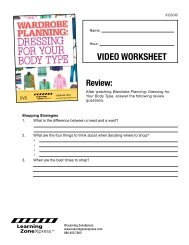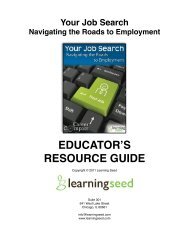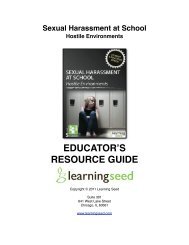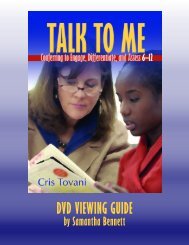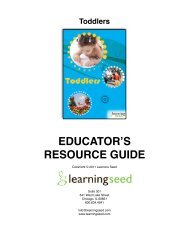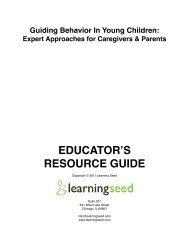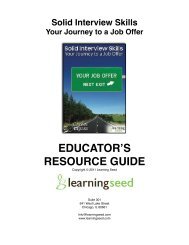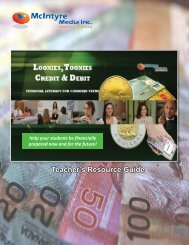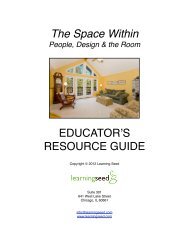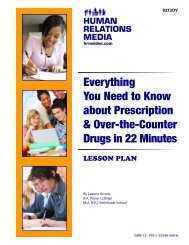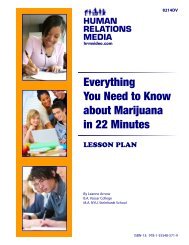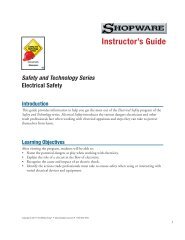EDUCATORʼS RESOURCE GUIDE - Learning Seed
EDUCATORʼS RESOURCE GUIDE - Learning Seed
EDUCATORʼS RESOURCE GUIDE - Learning Seed
Create successful ePaper yourself
Turn your PDF publications into a flip-book with our unique Google optimized e-Paper software.
Lesson Plan 1a (page 2 of 2)<br />
(Estimated Length: 40 minutes)<br />
I. Lesson Set-up (10 minutes)<br />
1. Before class, access the following websites and choose 5 dilemmas that are appropriate for your class:<br />
! Good Character! http://www.goodcharacter.com/dilemma/archive.html<br />
Quose !! http://www.quose.com<br />
2. At the beginning of class, share with students the following:<br />
• Moral dilemmas can be used to assess how children think about moral situations at various stages of<br />
their development.<br />
• Examining moral dilemmas is useful to understand how moral development takes place, and also to<br />
inform caregiving adults as to what is developmentally appropriate for children at various ages.<br />
3. Read each dilemma to the class and probe for responses. Ask students why they feel as they do. Represent<br />
responses visually on white board/projector etc.<br />
II. <strong>Learning</strong> Activity (20 minutes)<br />
1. Explain to students that they will be reading various dilemmas and answering questions about how they would<br />
handle each one.<br />
2. Distribute copies of “Moral Dilemmas: What Would You Do?” (Worksheet A in the Appendix) for each student<br />
to complete independently.<br />
3. Facilitate a class discussion about each dilemma and their responses.<br />
III. Closure: Discussion (10 minutes)<br />
Have a class discussion about Moral Development. The five questions below should guide your daily closing<br />
discussion.<br />
Answer Key<br />
1. What is moral development?<br />
2. How can moral development be assessed?<br />
3. Why is awareness of moral development important to our society?<br />
4. How can adults foster positive moral development in children?<br />
5. How could a lack of moral development lead to negative consequences?<br />
1. 3-year-oldʼs answer: “JOHN - He broke so many!”<br />
2. A. 4-year-old ! “Itʼs bad to steal. She will be punished.”! ! ! ! ! !<br />
B. 7-year-old ! “She should return it...but if she had no other way to get a<br />
present she could use that money...if she doesnʼt get caught.”! ! ! !<br />
!<br />
D. 17-year-old! “She should return it. If it were mine, I would hope someone would return it to me. !<br />
! ! ! Keeping it would be stealing and we canʼt condone stealing or what would our<br />
! ! ! society be? She should give it back for the good of society.”<br />
C. 9-year-old ! “She should try to find the owner and give it back. Whoever lost it deserves it back. !<br />
! ! ! People canʼt just go around taking what isnʼt theirs!<br />
3. Moral Rule; Social Rule<br />
A Child's Mind: How Kids Learn Right & Wrong<br />
8 Copyright 2011 <strong>Learning</strong> <strong>Seed</strong>



